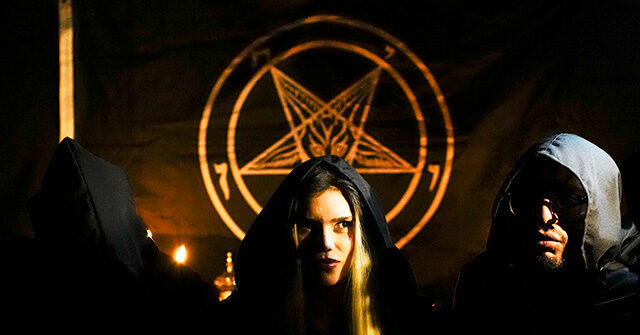The Temple of Satan, an organization aspiring to become the first legal Satanic group in Latin America, is reportedly gaining traction in Chile as traditional faiths see a decline in adherence, according to a recent Associated Press report. Founded in 2021, the Temple boasts approximately 100 members but has experienced a surge in interest, with over 400 membership applications submitted in recent weeks. A group spokesperson using the pseudonym “Haborym” highlighted the increasing appeal of the group against a backdrop of growing secularism and dissatisfaction with conventional religions. Fearing backlash, Haborym emphasized that the Temple promotes individuality and personal agency rather than endorsing violence or malevolence traditionally associated with Satanism.
The Temple of Satan, established by an individual known as “Azazel,” emerges from personal disillusionment with religious structures, particularly Judaism and Christianity. Azazel, who left Judaism four years prior, advocates for an interpretation of Satanism grounded in symbolic representation rather than literal worship. According to Haborym, the group’s rituals aim to elicit emotional experiences in members, promoting the idea that individuals are the architects of their destinies. The Temple distinguishes itself by requiring stringent application processes, which include background checks and psychological evaluations. Those accepted can adopt a new identity typically reflecting a demon or fallen angel, illustrating a departure from conventional religious identities.
Interest in the Temple of Satan is partly fueled by narratives surrounding personal freedom and the rejection of dogmatic belief systems. Members are attracted to a philosophy that asserts the absence of absolute truths, fostering an environment where individuals are encouraged to define their existence. Stories from members like “Kali Ma,” a dentistry student from a Jehovah’s Witness background, exemplify this sentiment, as they express discontent with the constraints imposed by their former religious communities. Kali Ma articulates that adherence to orthodox religion stifles personal expression and freedom, positioning Satanism as a contrast that empowers individuals to pursue their own beliefs and practices.
In July, the Temple of Satan formally applied for recognition as a religious organization in Chile, a significant move which would mark the first successful establishment of such a group with legal standing in Latin America. The request has prompted vocal backlash from conservative factions within Chilean society, particularly from lawmakers like Mauro González, representing the National Renewal party. González argues that Chile should not facilitate the proliferation of Satanism, reflecting a broader resistance to the growing secularization and pluralism within the country’s religious landscape. This controversy illustrates the tension between tradition and modernity that characterizes contemporary Chilean society.
The political and social tensions in Chile have been exacerbated by recent history, particularly following widespread protests that began in 2019. These protests were sparked by a minor public transit fare increase but rapidly transformed into a broader movement against the administration of then-President Sebastián Piñera, demanding significant societal change and reforms to Chile’s constitution. During this unrest, Catholic churches became targets for vandals, with acts of desecration and incendiary attacks reflecting an emerging dissatisfaction with traditional religious authority. Such incidents represent a significant departure from religious reverence, aligning with the Temple of Satan’s narrative that challenges established faiths.
In the aftermath of the constitutional crises following the protests, Chile has witnessed escalating polarization in its sociopolitical landscape. While leftist movements pushed for radical reforms, conservative forces have sought to maintain traditional values, resulting in significant electoral shifts. The rejection of leftist constitutional proposals illustrates a broader resistance to radical change, contributing to ongoing debates about identity, spirituality, and governance in Chile. Amidst this backdrop, the Temple of Satan’s advancements reflect broader social currents favoring alternative belief systems, signaling potential shifts in the fabric of Chilean religious life and identity. The evolving relationship between church and state, and between tradition and secularism, continues to shape the discourse surrounding religious pluralism in the country.

